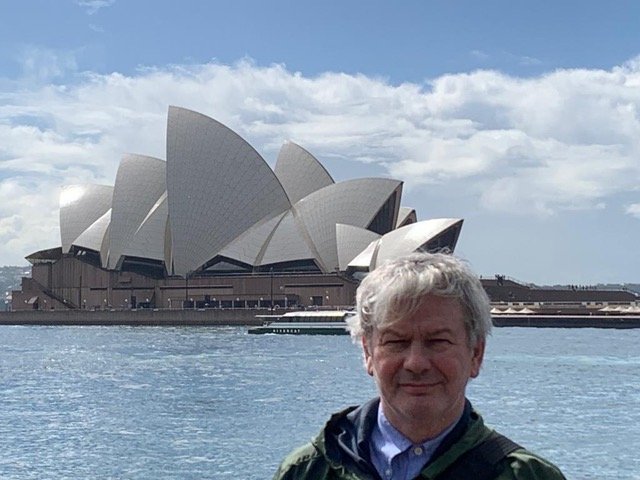Beware Strategic Myopia: An Incident in Romford Town Centre
Paul Cezanne - Sorrow. 1867
One Saturday afternoon I found myself in Romford Town Centre in floods of tears.
It was somewhere between Downtown Records and the municipal fountain. I was rubbing my eyes, dabbing my nose, sobbing and snivelling.
Standing nearby, Andy declared in a loud voice:
‘I’ve told you: it’s over. Why can’t you deal with it?‘
I could sense that we two teenagers were attracting attention from passers-by. I was hot and bothered and embarrassed.
I continued to weep.
‘Just pull yourself together, Jim. We can’t go on like this. It’s over!’
This story is not as it seems.
I had recently acquired my first set of gas-permeable contact lenses, and was struggling to get used to them. The slightest speck of dust caused intense irritation.
It was Andy’s idea of a joke. And to be fair it was quite funny.
It’s no surprise perhaps that research by ophthalmologists shows that our constant screen time is radically changing our eyes. (Adam Popescu, The Guardian, 14 Nov 2021)
The human eye is supposed to stop growing after our teens, just like the rest of our bodies. But our endless messaging, speaking on conference calls, reading and writing emails - what experts call ‘near work’ - strains our optic organs. We blink less and our lenses shift, and in time this leads to the elongation of our eyeballs. We then suffer myopia and the gradual loss of the eyes’ ability to focus.
‘The shape of the eye is round like a basketball. When an eye becomes near-sighted, myopic, the eye is longer, like a grape or olive.’
Dr Eric Chow, Miami optometrist
Near-sightedness affects half of young adults in the US, twice as many as 50 years ago, and over 40% of the population.
To address this depressing phenomenon, we are encouraged to take breaks, blink and lubricate; to spend more time outdoors; to embrace the 20-20-20 model.
‘Every 20 minutes, look at a distance 20 feet away, for 20 seconds.’
Dr Luxme Hariharan, Nicklaus Children’s Hospital, Miami
Some experts have observed that our ancestors spent more time staring at the horizon, scanning the distant panorama for potential risks and rewards. This induced a state of calm when there was nothing going on; and a state of intense focus when there was a threat or opportunity. They suggest that expanding our peripheral vision – ‘horizon gazing’ - may equip us to better concentrate and cope with stress.
You could argue that excessive screen time does not just cause physical short-sightedness and mental stress. For Planners it also produces Strategic Myopia: reliance on the same widely published data; concentration on the same narrow particulars of the problem; convergence on the same conventional solutions.
'Great minds discuss ideas; average minds discuss events; small minds discuss people.'
Eleanor Roosevelt (after Henry Thomas Buckle)
We should get out more. We need to breathe fresh strategic air; to take in new cultural stimulus; to observe contextual social change. We need to think more broadly; to plan more deeply; to raise our eyes to the horizon. Because the story is not always as it seems.
As the artist Vee Talbott suggests in Tennessee Williams' ‘Orpheus Descending’:
'Appearances are misleading, nothing is what it looks like to the eyes. You got to have vision to see!’
'It's over.
It's over.
It's over.
Summer came and passed away,
Hardly seemed to last a day.
But it's over, and what can I do?
Music playing in the air,
Silence on a darkened stair
'Cause it's over, and what can I do?’
ELO, ‘It’s Over’ (J Lynne)
No. 488

